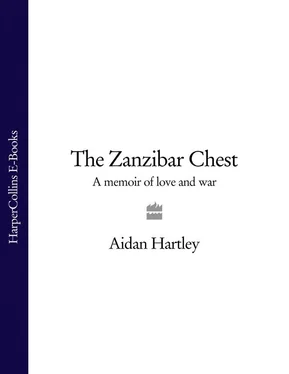A Reuters correspondent covering fascist Italy’s invasion of Abyssinia in 1935 sent a cable to Fleet Street headquarters to complain about the quality of the water in Addis Ababa. The solution, he proposed, was to send him crates of champagne. Even today, correspondents conformed to long-held customs. Fiddling expenses or making outrageous claims was a matter of professional pride to the foreign correspondent. It was still a subtle but vital part of a journalist’s credentials. A good stringer, particularly, had to be clever at massaging claims, since he or she was paid far too little in ‘wordage’ fees to keep body and soul alive. One had to resort to a mass of tricks to which editors, who had been in the field themselves, were honour-bound to turn a blind eye. Bogus receipt books, forged signatures, black-market cash transactions all came in handy. As long as you wrote down a claim on a receipt and had it stamped all over in purple you’d be all right. Years later I made an expense for a thousand dollars, itemizing it as payment for the services of two prostitutes for a banker I wanted to interview and management never questioned it.
At the end of the meals, I saw them tip the waiter to give them extra blank receipts. One explained to me how it worked.
‘Every trip, I try to make enough to buy myself a nice piece of electronics, see? A video, or some speakers…’
I was astonished to see one of them rummaging through a waste-paper bin full of discarded receipts at the restaurant entrance.
I became desperate. I knocked on doors, pleading with the other correspondents to tell me where I was going wrong.
‘Please tell me what’s happening?’
‘No, I’m not going to help you just like that,’ said the BBC correspondent Lindsey Hilsum.
‘Pleeeaaase.’
‘No.’
Finally, I went to Julian and Eric and they tried to calm me down. Short of writing my copy, however, they could do little. Up in my room, as my filing deadline loomed, I scribbled a first paragraph. Crossed it out. Screwed the paper into a ball. Wrote another. Screwed it into a ball. And so on, until I had no pages left in my notepad and began work on the hotel stationery. What could I write, when I saw nothing The Times man did? Nobody had agreed to speak to me, so I had no quotes, facts or figures. My taxi driver was the only Sudanese who gave me any comment on the political situation. He said: ‘Army bad! Army bad!’
I was close to despair, when there was a knock on my door. It was Eric, with a camera slung over his shoulder. ‘Come with me,’ he said. ‘All right,’ I said gratefully. The foyer doors parted with an electric sigh and we emerged into the haboob and clambered into a battered taxi.
I never saw Eric hot, ruffled, unkempt, or miss a story, no matter which jungle or slum or refugee camp he fetched up in. He made covering Africa look easy. And when a day’s journalism was done he’d tell you unprintable tales full of laconic humour, between heavy exhalations of cigarette smoke and always a crazy laugh at the end. Eric had been raised in St Joseph, Missouri, and I think he’d grown up wanting adventure thanks to the example of his father, William Ransdell, who had joined up with the USAF at eighteen. As a navigator in the nose of a B-17 bomber his old man had flown thirty-five daylight missions over Germany, through ribbons of flak and Nazi fighters, with engine shutouts, two crash landings and raids so perilous that on one sortie two-thirds of the bomber group got shot down. By the time Eric was at journalism school he had travelled all over Asia and Australia but he found his cause when he learned what was happening in apartheid South Africa. ‘The more I read, the more I came to feel that what was happening in South Africa was one of those pure evils, utterly black and white, just like the one my father had fought in Germany,’ he told me. He touched down in Johannesburg in 1985, soon after the townships exploded. The sudden rush of being in this place – comrades toyitoyi-ing around burning tyre barricades, Casspirs filled with soldiers in riot gear, witnessing Desmond Tutu’s church sermons – changed his entire life. Back at home he wrote an article about what he’d seen that won a William Randolph Hearst award. But when he attempted to return to South Africa Pretoria rejected his visa, so he had no choice but to head for ‘liberated’ black Africa, and now here we were.
Minutes later our taxi stopped at the gates of army headquarters. We got out next to a large Soviet tank and Eric moved off a few steps to speak with a sentry. To my astonishment, the guard nodded and called an officer, who marched us into the heavily fortified military complex until we entered a dark office, where a man sat behind a huge desk. By the spade-sized epaulets on his shoulders, I knew him to be an officer. By his shy and deferential manner, I took him for a lowly fellow in the chain of command. We engaged in a little small talk. The officer had a habit of blinking very fast so that his eyelids fluttered.
‘You are English?’ he asked me with a smile. I said I was, but that I had been raised in Africa.
‘Ah, I love England very much,’ the officer said, disregarding my claim to an African identity. ‘Manchester United is my team. What is your team?’ I have no opinion about football but I wanted to put him at his ease. ‘Chelsea,’ I ventured.
‘You are a Christian?’ I said I was, deciding to go along with this quietly.
‘You must know that I myself attended the Oxford University,’ the officer said complacently. Blink blink.
‘Oh? Which college?’
‘Ah, Oxford Street,’ he replied, blinking faster as he smiled so widely that he exposed his gums.
After some minutes of this I saw it was time for me, the Eyes and Ears of the World, to seize control of the situation. It was time for me to begin my career in earnest. I was being nudged forwards by the ghost of my great predecessor, the twenty-three-year-old war correspondent Winston Churchill, who had been in this place when he covered Kitchener’s defeat of the Mahdist forces at the Battle of Omdurman in 1898.
With just the right tone of firmness I thought appropriate, I asked, ‘And when do we get to interview His Excellency the President?’
There was an embarrassed silence. Eric stared at me agape. The Sudanese with the giant gold epaulets had stopped blinking. Somewhat apologetically, he replied, ‘I am the President.’
It’s 11 July 1989, and we are belted in as the Kenya Airways flight taxis for the runway. We’re homeward bound for Nairobi after the military coup in the Sudan. We’re tired and dirty after an eighteen-hour delay out of Khartoum due to sandstorms followed by a technical hitch stopover at Addis Ababa’s Bole airport. The aircraft is half-empty. Eric is next to me and across the aisle is Julian, pulling on a fag after the no smoking lights have come on. The three of us barely know one another, but what’s about to happen will bind us together forever. This moment is when it all really begins. This is why years later I like to fancy that the people who make up my story, even the ones who are not on the plane that day, fill all the vacant seats. And so I look down the aisle and see, half turning to look at me, the faces of Jonathan, Buchi, Hos, Dan, Afrah, Carlos, Bald Sam, Shafi, Lizzie. And among them are dozens of other ghosts and fellow travellers we met along the way.
Our Boeing 707 accelerates and lifts off. Within seconds it becomes clear that we are failing to gain altitude. Julian rests his head against the seat in front of him and exclaims dolefully, ‘We’re not going to make it!’ The aircraft banks in a tight circle. Through my porthole the wing is vertical, skimming peasant huts and fields. We hit the ground halfway down the runway. The jets scream in reverse thrust. Overhead compartments crash open, spilling bags and tubes and yellow masks. We spin, tilt, the wheels give way as the fuselage torpedoes down a mountainside. The port wing buckles and rips away. Din of turbines, tearing metal, electronics and then silence.
Читать дальше












